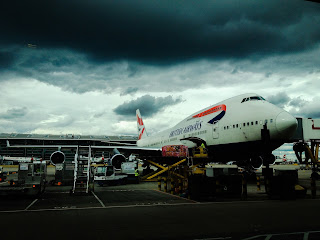Tuesday, April 26, 2016
Thursday, April 7, 2016
Airport Security: What is it going to take for airport security to be tightened up in regards to airline and airport employees?
Hey there!
Freedom is the
greatest gift known to man! In
the same context, an airline or airport employee has such freedom when issued a
SIDA (Secure Identification Display Area) badge to gain access to secured
areas such as baggage loading areas, taxiways, runways and boarding gates.
Prior to issuance of a SIDA
badge, all employees must meet both TSA background check requirements and
criminal background
This SIDA badge is the GATEWAY TO THE WORLD! Regrettably, the airline and airport
employees utilize this resource for their own personal business enterprise by
performing illegal activities that are also known as a “side hustle!” A “side
hustle” is money laundering, transporting weapons or drugs, and something as
simple as using your SIDA badge for your own personal business moving goods and
services. "A gun-smuggling ring that brought illegal firearms into
Brooklyn via commercial airline flights was dismantled after investigators
pinched the mule and nabbed his hookup-a Delta employee in Atlanta" (Yaniv
& Stepansky, 2014). I tweeted an article which demonstrates
these unethical behaviors performed by airline employees Airport
Security: Why the rash of airline employee trouble? ow.ly/10dBUp.
What is
it going to take for airport security to tightened up in regards to airline and
airport employees? The government’s bureaucratic red tape makes
this issue thorny not only for
the millions of dollars desired by the DHS but also the resources required by
the TSA. I addressed this
gap in my book called “The Inside Man:
Evaluating Security Communication Failures at a United States Commercial
Airport” regarding the
ability to effectively communicate and execute airport security policies
successfully between TSA, airlines, and airport employees. I explored how communication among the
employees of the TSA, airlines, and airport influences the effective execution
and implementation of policy and policy changes:
“When there is
a failure of policy execution, particularly in the communication of information
within the TSA organization. These risks include (a) prohibited items being
undetected at security checkpoints and (b) planes returning to the gates when
prohibited items are identified and the airlines have to remove the passenger
from the plane. At the level of the airline organizations, (a) passengers feel
the impact when making their connecting flights, which increases passengers’
anxiety; (b) a delay of bags at passengers’ destination creates bag claims and
baggage delivery charges; (c) a heightened public awareness of prohibited items
passing through checkpoints creates a sense of doubt of these government
security policies; and (d) terrorists are aware of TSA failures, which creates
opportunities to exploit the passenger screening process through Internet
technology and mass media. (Tyler, 2016).
Tyler,
S. (2016). The Inside Man: Evaluating Security Communication
Failures at a United States Commerical Airport. Univerity of Press of America.
Rowman & Littlefield.https://rowman.com/ISBN/9780761867265/The-Inside-Man-Evaluating-Security-Communication-Failures-at-a-United-States-Commercial-Airport
Yaniv, O. &
Stepansky, J. (2014). Gun-smuggling ring from Atlanta to JFK used Delta flights
to move weapons: sources. Retrieved from http://www.nydailynews.com/new-york/delta-worker-smuggled-guns-flights-atlanta-jfk-article-1.2054257
Subscribe to:
Comments (Atom)

